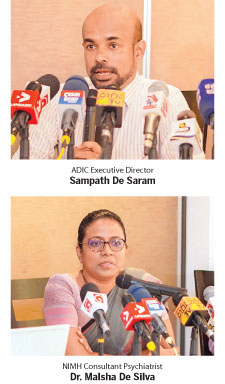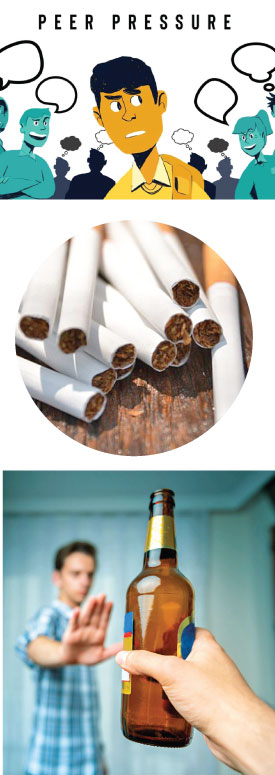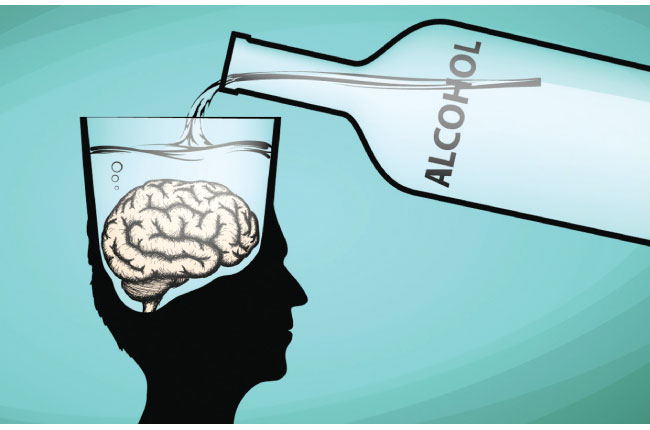According to the World Health Organization (WHO), there are 1.3 billion tobacco users worldwide. In addition to people dying of smoking, thousands live with a serious smoking-related illness. Smoking causes cancer, heart disease, stroke, lung diseases, diabetes, and Chronic Obstructive Pulmonary Disease (COPD), which includes emphysema and chronic bronchitis.
 Smoking also increases risk for tuberculosis, certain eye diseases, and problems of the immune system, including rheumatoid arthritis. Unfortunately, there are those who believe that making money is more important than the health and wellbeing of humanity.
Smoking also increases risk for tuberculosis, certain eye diseases, and problems of the immune system, including rheumatoid arthritis. Unfortunately, there are those who believe that making money is more important than the health and wellbeing of humanity.
It is natural to feel helpless in the face of such darkness. But remember the best way to break the power of the tobacco industry is through role models. If an adolescent looks up to someone who does not use tobacco, or even someone who does not consume alcohol, then it is extremely unlikely that the boy or girl will fall into such negative behaviour patterns.
The Alcohol and Drug Information Centre (ADIC) recently held a press conference to launch the 2023 Tobacco Industry Interference Index of Sri Lanka and also to discuss the impact of the 2024 Budget proposals concerning alcohol, tobacco, and other drugs. ADIC has been engaged in demand reduction of alcohol, tobacco and other drugs in the country for over 30 years. They are dedicated to providing accurate awareness information to the public regarding the health, social, economic, and environmental consequences associated with the consumption of these substances.
Head of Global Research and Advocacy at Global Center for Good Governance in Tobacco Control (GGTC), Mary Assunta,in her address, said that many countries have contributed to the development of the Global Tobacco Industry Interference Index 2023. Assunta, who participated online, also said that she wished to share some highlights of the index with all gathered at the press conference that day.
 The tobacco industry has intensified its interference in public health policy. Governments are obligated under the WHO Framework Convention on Tobacco Control (WHO FCTC) to protect their health policies using Article 5.3 and its implementing guidelines, which provide actions governments can take to protect public health policies from commercial and other vested interests of the tobacco industry (TI) and those who further its interests.
The tobacco industry has intensified its interference in public health policy. Governments are obligated under the WHO Framework Convention on Tobacco Control (WHO FCTC) to protect their health policies using Article 5.3 and its implementing guidelines, which provide actions governments can take to protect public health policies from commercial and other vested interests of the tobacco industry (TI) and those who further its interests.
Dealing with industry pressure
“In 2008, many countries ratified the WHO FCTC, including Sri Lanka. They are committed to protecting their tobacco control policy from the tobacco industry interference by adopting Article 5.3 guidelines. This is an obligation. After adopting these particular guidelines, where are the countries after 15 years? Globally the tobacco industry has intensified its interference in public health policy and undermined and derailed government efforts. No country is spared from tobacco industry interference including those in Asia. Many governments were influenced by the tobacco industry because they did not take a cohesive approach in dealing with the industry. As we see there is a worsening trend as more countries succumb to industry pressure,” said Assunta.
How is Sri Lanka performing globally? Sri Lanka is ranked eleventh out of 90 countries, that is amongst the countries that are doing reasonably well. “However there is plenty of room for improvement for Sri Lanka. Sri Lanka can still improve its ranking. So what happens when governments allow industry participation in policy development? In Asia, in the Philippines and Indonesia for example, the industry interfered in the regulation of these cigarettes. Today both countries are facing a big problem when it comes to smoking. If you take tobacco-related corporate social responsibility (CSR) activities, many governments still accepted CSR handouts from the tobacco industry. These are tactics used by the tobacco industry. When governments accept CSR from the tobacco industry, they allow the industry a foot in the door so that they can meddle and interfere in policy development.”
Governments in Asia continued to give benefits to the tobacco industry. There was no tax increase in Malaysia and Mongolia. There was delay in tax payments from the industry in Sri Lanka and Indonesia. “Governments continue to subsidize tobacco farmers in Indonesia and in the Philippines. Duty free means cheaper cigarettes, and it is a benefit to the industry. Many Asian countries still allow duty free cigarettes for international travellers. And this practice must stop. Article 5.3 calls for governments to limit their interaction with the tobacco industry, and only when it is strictly necessary. Many governments around the world and in Asia engage with the industry unnecessarily by forming partnerships or giving out awards. Fifty percent of the countries we surveyed who presented awards to the industry were from Asia. So you can see that this is a common practice among many Asian countries.”
 Legislators in many countries made themselves vulnerable to industry interference by placing themselves in situations of a conflict of interest. This happens by either accepting political donations or being involved in the tobacco business itself. “Retiring senior government officials joining tobacco companies or the other way around where industry executives take up senior government positions, create opportunities for industry meddling in health policies. Transparency and accountability remain a problem across most countries globally and in Asia. It is vital that there should be no closed door meetings between the government and the tobacco industry,” added Assunta.
Legislators in many countries made themselves vulnerable to industry interference by placing themselves in situations of a conflict of interest. This happens by either accepting political donations or being involved in the tobacco business itself. “Retiring senior government officials joining tobacco companies or the other way around where industry executives take up senior government positions, create opportunities for industry meddling in health policies. Transparency and accountability remain a problem across most countries globally and in Asia. It is vital that there should be no closed door meetings between the government and the tobacco industry,” added Assunta.
She further explained that to stop tobacco industry interference the whole government must be involved. The whole government needs to ban tobacco industry-related CSR activities. Governments also need to reject all non-binding agreements with the tobacco industry, and adopt an exit policy of about five years for retired government officials. Should they want to join the industry, they need to wait for at least five years to do so. “Stop giving benefits or incentives to the tobacco industry and implement a code of conduct and limit all interactions, and only when it is strictly necessary for the government to regulate the industry. There is still plenty of room for improvement for Sri Lanka to do better in protecting its tobacco control policy from tobacco industry interference.”
Consuming tobacco is a red flag
Consuming tobacco is a destructive habit and if you want to protect your life and also lead a happy and healthy life, you need to stay away from tobacco as if it is the plague. However, some would argue that consuming alcohol is not a black and white issue, and that ‘social drinkers’ have some sort of control over themselves and that drinking does not have an undesired and harmful effect on their lives. This is the argument put forward by some people.ADIC however thinks differently as they point out that according to the data from the WHO and the Health Ministry, in Sri Lanka, every 8 out of 10 deaths are categorized as preventable deaths. Tobacco and alcohol use have been identified as two major risk factors which are responsible for these preventable deaths, where 40 to 50 deaths per day occur due to alcohol use.
ADIC has found out that currently alcohol is clearly a large burden to the country’s economy. In 2022, the excise revenue from alcohol tax was Rs. 165.2 billion. Yet, the ‘Investment Case for Alcohol Control in Sri Lanka’, conducted by the United Nations Development Programme (UNDP) reported that the health and economic loss incurred by the government due to alcohol use is Rs. 237 billion. Moreover, the citizens of our country spend Rs. 590 million per day on beer and arrack and Rs. 380 million per day on cigarettes, which results in a large overall economic burden.
ADIC points out that recommendations in the 2024 Budget raise significant concern on the fact that the government appointed a Parliamentary committee to eradicate the drug issue in the country, while the 2024 Budget includes several proposals to increase the availability and overall usage of alcohol. The Budget reading has outlined initiatives that are seemingly advantageous to the alcohol industries as evidenced by the inclusion of flexible opening hours which clearly contributes to an overall increase in alcohol consumption due to heightened availability, thereby rendering it a potentially counterproductive strategy. ADIC believes that irrespective of whether the product is legal or illicit, alcohol itself is harmful in every aspect and therefore, the government should be taking the required steps to reduce the overall alcohol consumption in the country.
ADIC wishes to remind us that a similar initiative was taken by the finance minister in 1995, where beer prices were decreased by more than 50 percent to control illicit alcohol consumption. This only resulted in increased beer usage and no solution for the illicit alcohol issue! It is important to note that according to the WHO, strengthening restrictions on alcohol availability and reducing alcohol availability through taxation and pricing policies are among the scientifically proven, single-most cost-effective alcohol control measures that can be established within a country.
ADIC Executive Director Sampath De Saramsaid that it is imperative that we protect our countries from interference by the tobacco industries throughout the world. “The WHO FCTC is a milestone in the promotion of public health and provides new legal dimensions for international health cooperation. Sri Lanka has also been a part of this. When you take alcohol, there is an attempt to create a similar framework, but that has not taken place yet with the participation of other countries. So next February in Panama there will be a WHO FCTC conference, which many countries will take part in, and there will be discussions which Sri Lanka will also participate in. The tobacco industry is an industry like no other in the world. It is an industry that basically kills people. In Sri Lanka every year 20,000 people die, 40, every day. So the industry kills people and makes others very sick. In order to sell their product, the tobacco industry engages in various tactics. This is where the FCTC comes in, to control the situation,” said De Saram.
 De Saram added that in comparison to the rest of the world, Sri Lanka’s position seems to be relatively good. This is mostly due to the media sharing information. He further added that this is one of the reasons we have been able to mitigate this problem. Now the biggest challenge is how do we face the future and deal with the problems created by the tobacco and alcohol industries?
De Saram added that in comparison to the rest of the world, Sri Lanka’s position seems to be relatively good. This is mostly due to the media sharing information. He further added that this is one of the reasons we have been able to mitigate this problem. Now the biggest challenge is how do we face the future and deal with the problems created by the tobacco and alcohol industries?
“There is a very real possibility that the tobacco industries will try and sabotage our efforts and prevent our plans from coming to fruition. They will try and prevent the dissemination of information by the media. Through CSR projects they try and appear as angels of light, trying to appear benevolent. They kill around 40 people per day, but plant 10 trees saying that they are doing a service to society. They kill 40 people per day, but provide water facilities saying that they have done a great thing. This is the interference of the tobacco industry. They also try and influence public opinion. Even on social media today you see people holding cigarettes,” explained De Saram.
Consultant Psychiatristat the National Institute of Mental Health (NIMH), Angoda, Dr. Malsha De Silvasaid that the condition of many patients that she and other psychiatrists encounter, it is directly or indirectly linked to excessive alcohol consumption. “Addiction is a very complex area in mental health. When it comes to addiction we know that teenagers are vulnerable. Why is that? The answer can be found in neurobiology, a scientific field in which researchers study brain function. People feel that when we are born the brain is fully developed. But the truth is that this happens normally when one is around 18 years old. Adolescents they try so many things out, take risks and succumb to peer pressure. This group is very vulnerable. Research tells us that if addiction happens at this age, then it will be very serious. And the physical and mental health complications then develop,” De Silva said.
According to the Center for Disease Control And Prevention, excessive alcohol use can lead to high blood pressure, heart disease, stroke, liver disease, and digestive problems, cancer of the breast, mouth, throat, esophagus, voice box, liver, colon, and rectum. It also contributes to the weakening of the immune system that increases the chances of falling in. It also leads to learning and memory problems, including dementia and mental health problems that include depression and anxiety.
“The real horror of the situation is that the person knows that it is destroying his or her life, but is unable to stop his or her life spiraling out of control. The craving is too much. The family is destroyed. And after all of this, social problems follow such as poor school performance, family problems, job-related problems and unemployment.”
Ishara Jayawardane






